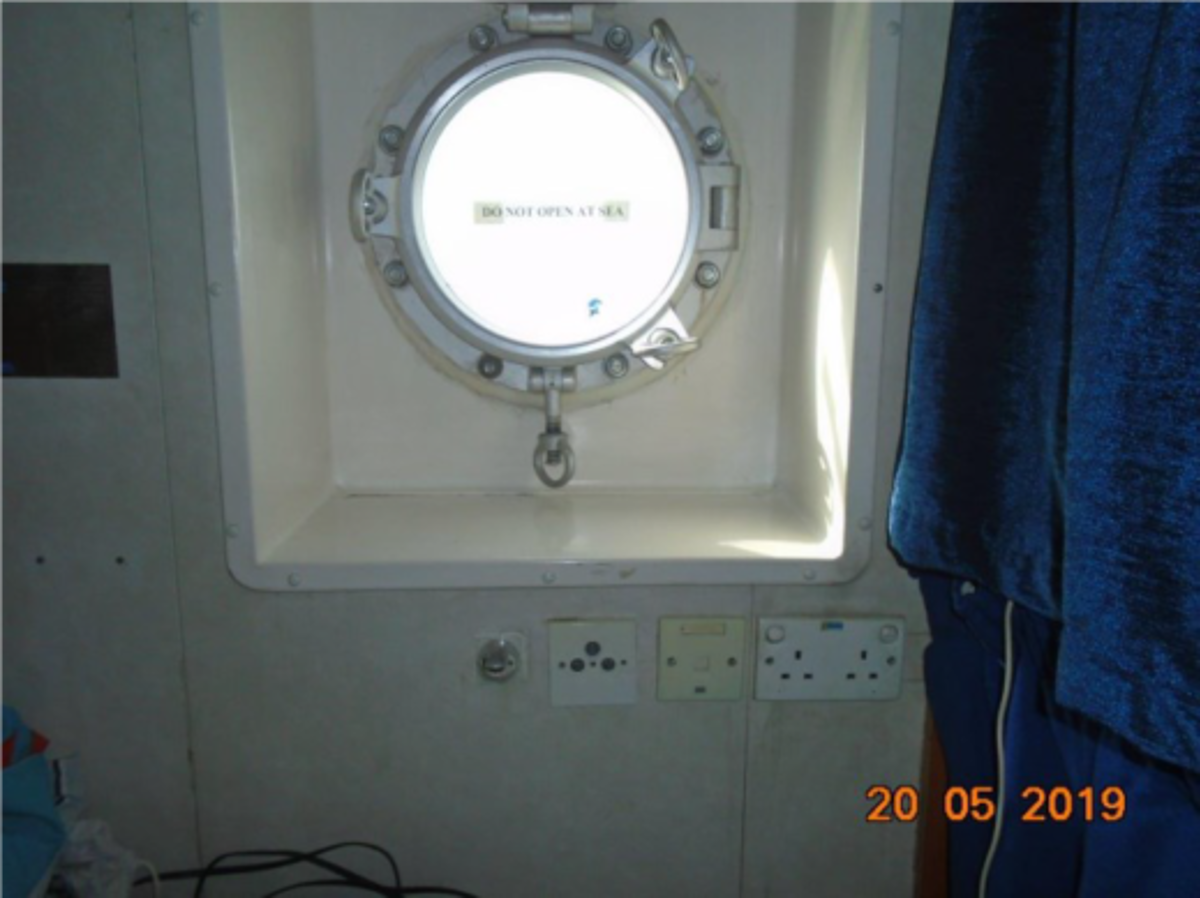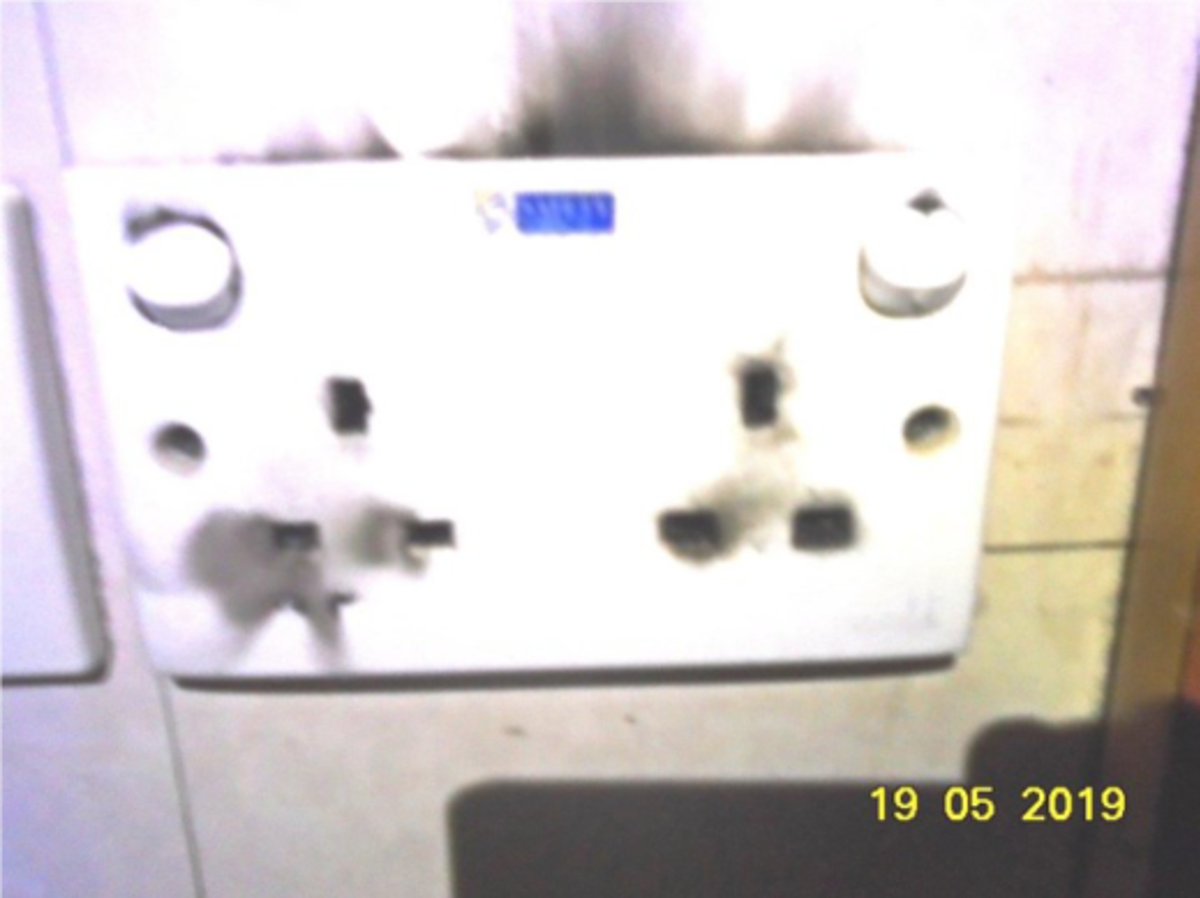Seawater entering cabin caused electrical fault
- Safety Flash
- Published on 12 August 2019
- Generated on 3 March 2026
- IMCA SF 19/19
- 1 minute read
Jump to:
During vessel operations, a porthole in a passenger’s cabin was left untightened and slightly ajar.
What happened?
This allowed for seawater to enter the cabin and seep into the electrical socket under the porthole causing a short circuit resulting in burnt wiring and smoke in the cabin.
A passenger observed the smoke and raised the alarm; the response team attended the scene and immediately isolated the supply.
The Master subsequently held a time out for safety – involving all passengers and crew – to highlight the safety failings, potential outcomes and improvements required regarding this near miss.
What went wrong?
Cabin occupants failed to ensure that portholes were closed during vessel transit.
What actions were taken?
- Ensure all are given full and appropriate vessel induction when boarding, and that all are aware of the need to maintain watertight integrity at all times.
- Ensure full and effective watertight integrity inspections are made and confirmed when leaving port.
Related Safety Flashes
-
IMCA SF 18/18
23 August 2018
-
IMCA Safety Flashes summarise key safety matters and incidents, allowing lessons to be more easily learnt for the benefit of the entire offshore industry.
The effectiveness of the IMCA Safety Flash system depends on the industry sharing information and so avoiding repeat incidents. Incidents are classified according to IOGP's Life Saving Rules.
All information is anonymised or sanitised, as appropriate, and warnings for graphic content included where possible.
IMCA makes every effort to ensure both the accuracy and reliability of the information shared, but is not be liable for any guidance and/or recommendation and/or statement herein contained.
The information contained in this document does not fulfil or replace any individual's or Member's legal, regulatory or other duties or obligations in respect of their operations. Individuals and Members remain solely responsible for the safe, lawful and proper conduct of their operations.
Share your safety incidents with IMCA online. Sign-up to receive Safety Flashes straight to your email.

